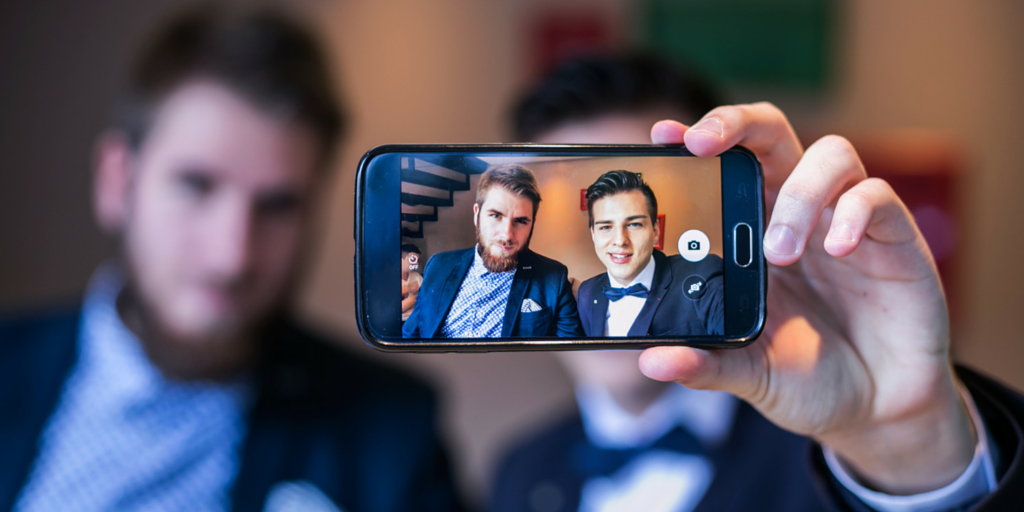
According to the Pew Research Center, the millennial generation is on pace to become the nation’s largest living generation with a population projection of 75.3 million people. The dominance that this sacred demographic, ranging from ages 18 to 34, has had on marketing conversations over the last few years is no surprise.
For many companies, “millennial” refers to a well-educated young person with newly acquired disposable income. This persona might also have an impulsive purchasing habit, not much put away in their savings account, and no solid plans for the future. For other companies, they’re an even less defined group of people that possess a heartbeat, an infinite collection of mason jars, and an iPhone. According to mainstream media, millennials are vocal and visible, clique-y and squad-y, easy to follow and hard to predict. I mean, they don’t even buy cereal!
That’s a vast range of people to nail down into one marketing strategy.
Trying to build an efficient and effective marketing strategy from short-sighted conclusions is a lot like racing a Hoverboard against a Razr scooter. You’ll waste a lot of excess energy (and look tired and desperate) as you try to keep up. As the resident millennial expert, I’m here to dispel common misconceptions about our generation that could actually be hurting your chances of successfully marketing to Gen Y.
Myth #1: Millennials are getting nostalgic and yearning for traditional marketing.
Sure, we love showing off craft beers and polaroid cameras in pretty flat lay instagrams, but glossy magazine ads, catalog cutouts and newspaper coupons from big brands are like ancient artifacts. So what’s the magic tactic that will prove that your company knows how to market to millennials? It’s simple. If you want millennials to pay attention to your product, you have to pay attention to them (and lots of it). It’s safe to assume that millennials have spent the vast majority of their trendsetting lives near some type of electronic device or oversized billboard with loud brand messaging, your task is to stand out from the noise.
Fact: Instead of taking a “there’s a lot of fish in the sea” approach, pinpoint the big organic whale in the pond to champion your product. Tap into your network to find the voices that will amplify across industries and platforms in ways that your brand can’t. By developing a customer-centric approach, your brand will be able to get closer to an inbound marketing approach that is more welcoming to millennials. Millennials are more than willing to interact with brands on a regular basis than other age groups, but only if it’s a fresh, new approach.
Myth #2: Millennials love branded content, brand experiences and well, brands in general.
It’s true, millennials don’t really mind things that are branded as long as they look cool and add some kind of real value. We’ll happily wear your exclusive wristbands at a free concert or even name your next potato chip flavor. This may sound like a payday for big brands, but millennials are inundated with lots of choices so your messages have to stick out. For every brand millennials choose, there are plenty more that we didn’t favor.
Fact: According to a recent survey conducted online by Harris Poll on behalf of Ambassador, 95% of 18-to-34-year-olds say they would like some sort of incentive for (money, product or service, loyalty points, early access, swag) for sharing a product via social media or email. Stand out and make it to the top of the millennial VIP list by getting creative and rewarding certain activities, repeat purchases or touch points with your brand. Your brand has to be hard to forget – and cash, credit, or points are typically hard to forget.
Myth #3: Millennials have their faces buried in tech, they don’t value face-to-face conversations.
Okay, I admit it, many of us do bring our cellphones, tablets and drones to the lunch table with us, never give full responses to your questions, and take selfies mid-sentence. Heck, my favorite way to watch Scandal is while refreshing my Twitter feed and tweeting along with my fellow gladiators. Want to know why we love multiple screens? Because we’re talking to a broader audience than those sitting right in front of us. As much as we love talking about ourselves, we also love talking to our friends about things that we find helpful, entertaining, or just plain charming.
Fact: If your brand is producing buzzworthy content, an irreplaceable service, or an unbeatable product, then we’ll be more than happy to let everyone know about it. In fact, according to a recent survey conducted online by Harris Poll on behalf of Ambassador, 92% of 18-to-34 year-olds say they seek recommendations from friends and family when considering a product purchase — 10% greater than the general population. Provide shareable experiences, rewards and knowledge that can live online and IRL via word-of-mouth.
Demistifying marketing to millenials
Although we’d love to be able to make or break all of your marketing efforts (we’re a pretty vengeful group, don’t you think?), we simply don’t have that much power. The best way to market to millennials is to work around data-supported conclusions and forge the same kind of relationships you would with any other customer. Yes, we tend to speak a different language and sometimes have oddly colored hair, but millennials aren’t aliens. Chances are, your audience of millennial customers just exhibit more pronounced patterns of behavior that exist throughout your customer base. Oh, and most importantly, please stop calling us millennials!